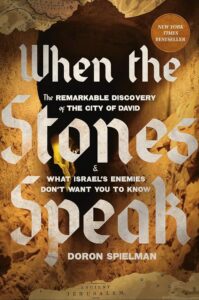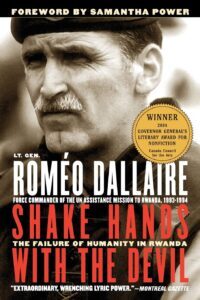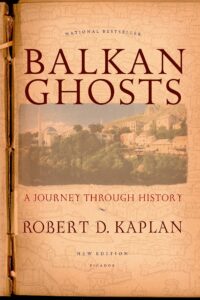Headed on vacation? Stop scrolling social media and read real books by real authors. You may not be any happier at the end, but you will know more. Really.
When the Stones Speak
Doron Spielman
When the Stones Speak is a brilliant excavation (no pun) of Jewish history in the City of David. Spielman, an American by birth, has spent more than two decades working to transform the City of David into one of the world’s most significant archaeological and historical sites. It is, like every serious book about the Middle East, both historical and current in reference.
Archaeology is a way to understand the past – to learn history from those who lived it. In Israel is a way to connect to the lives and struggles of people 3,800 years ago who are our people, who lived where modern Israelis live, and where Jews from around the world can breathe the air their ancestors breathed and walk the land they walked.
But there are other people. They do not want to venerate the past and connect to it; they want to destroy it so they can write their version of the future. In the middle of Israel’s current war – not only against Hamas, but against antisemitism, historical ignorance, political journalism, Western pacifist supremacy, and Islamic radical ideology – keep your eye on those people.
People often think this is a “hasbara battle.” That if you can present facts, you will win the argument. The question was put to Spielman in an interview in The Jerusalem Post, “The ‘hasbara’ battle is clearly difficult, due to the historical denialism promoted by the Palestinians and their allies. How do you tackle this in your book?”
He replied, “[By] presenting the incontrovertible archaeological evidence found in the City of David, to the south of the Old City [of Jerusalem]. This site reveals that the Jewish people have a 3,800-year-old history, thus proving that they are indigenous to Jerusalem and the Land of Israel.”
He is partly right. But Israel’s enemies – particularly those of the Islamist, Muslim Brotherhood, ISIS, Shiite fundamentalist movements – know the truth.
Did you think Arab conquerors of 638 CE didn’t know the Israelites had their Temple on the Temple Mount long before they put the mosque there? Or that the Jordanians didn’t know the patrimony they destroyed after 1948? Of course they did, but they a) didn’t care and b) figured that at some point YOU wouldn’t know or care or both. For decades, the Palestinian Authority, Hamas, the UN and other international organizations have supported teaching Arab children that the Jews took their mosque from them. The result is that when Arabs are told periodically that “The al-Aqsa Mosque is in danger,” thousands of people try to get there to defend it and attack the attackers. Around the world, Muslims demonstrate against Israel for the danger they believe Jews are doing to THEIR patrimony.
Many do not know and do not care that Jerusalem was known to Islamic scholars as the holy place of the Jews. Many others do not know and do not care that Jerusalem is not mentioned in the Quran even once. “The al-Aqsa Flood” – the historically gruesome, disgusting, vampirish murder, torture, and kidnapping of Jews on 10/7 – was named that to resonate with those who believe that Jews in Jerusalem are an intrusion.
That is not a reason not to read When the Stones Speak. On the contrary, it is a reason to ensure that we – as lay people and supporters of Israel – have real, factual information about the history of the Jewish people in the Land of Israel.
But don’t let it lead you to believe enlightenment of Israel’s enemies is the likely outcome of any “hasbara battle.”
Spielman, by the way, does not appear to believe that either.
The book is not a hasbara piece. It is a well-constructed telling of the finding and excavation of the City of David. Spielman takes us through the ruins – literally, my skin was crawling as he and his crew were crawling through tunnels in the muck – and through the mundane parts of the process – Israeli bureaucracy, fund-raising, and teaching. He is a brilliant storyteller.
The first chapters are modern history – Charles Warren and Baron Rothschild, and families that trace their presence in Jerusalem to the Spanish expulsion of 1492. In 1536, “Suleiman the Magnificent encouraged Jews to settle around Jerusalem. He built the 1,300 sq.ft. plaza in front of the Western Wall and declared that Jews would have the right to pray there ‘for all time.’” Not to be. The British left chaos and war, and on May 28, 1948, the Jewish Quarter surrendered, and the illegal Jordanian occupation of eastern Jerusalem began.
Col. Abdullah al Tell of the Jordanian Arab Legion was an honest man. Reporting on the destruction of the Jewish Quarter, he wrote:
The systematic demolition inflicted merciless terror in the hearts of the Jews, killing both fighters and civilians.” He added, “For the first time in one thousand years, not a single Jew remains in the Jewish Quarter. Not a single building remains intact. This makes the Jews’ return here impossible.
Which was the point. Israel retook Jerusalem in 1967 and – in a fit of something other than common sense – gave authority for al-Aqsa mosque on Temple Mount to the Islamic Waqf (an inalienable charitable endowment), which proceeded to destroy as much Jewish patrimony on the site as possible. The story of “Solomon’s Stables” is horrifying, though not surprising. Nor, in fact, is Spielman’s note that:
Few people realize that [the destruction of the Temple Mount] was possibly the largest archaeological destruction in world history. When the Islamic State destroyed Nineveh and other historic sites in Iraq, UNESCO called it a “war crime.” But when the PA destroyed fifteen thousand tons of treasures from the First and Second Temples in Jerusalem, the world organizations were all silent.
But the archaeologists persist. Fascinating chapters on King David’s Palace, the Pool of Siloam, the Pilgrimage Road, and a fabulous chapter on “Palestina” take the center of the book. You can be fairly certain most Palestinians do not know the origins of the name “Palestine,” adopted in 1964 by Yasser Arafat. You will.
Part II takes on news media, international organizations, some Jews, and the sad saga of Huweida – an old friend from college in the US who had been part of an Israeli Palestinian discussion group. Huweida has become a Palestinian spokesperson – who announces, “I will never stop fighting until the genocide against the Palestinians ends.” Sigh.
There are helpful Arabs and vicious Arabs, just as there are honest journalists and political ones. Spielman talks about all of them.
Do not miss the chapter of the Golden Bells.
Do not forget where we came from.
Shake Hands with the Devil

LTG Romeo Dallaire
(Full Review: Fall 2016)
When ‘Never Again’ Doesn’t Mean Never Again
Rwanda is proof – if proof is needed – that the world still contains a lethal mix of condescension, racism, apathy, self-righteousness, and carelessness. It is also proof that the United Nations, far from preventing a holocaust (appropriately used here) simply allowed individual countries to hide behind the edifice, and worse, hide their real agendas behind an impersonal bureaucracy in a first-world country.
Shake Hands with the Devil is the 2003 memoir of retired Canadian LTG Romeo Dallaire, Commander of the UN peacekeeping force in Rwanda (UNAMIR). It was written years after the fact because it took that long for him to commit some of the most terrible parts to paper. Ugly as the descriptions are, one suspects there is worse still in his head. He attempted suicide four times after his return to Canada.
A military man, Dallaire connected best with other military officers regardless of their origin. Troops from Senegal, Ghana, Uruguay, Tunisia, and Bangladesh were extraordinarily dedicated to the under-staffed, under-armed, and under-funded mission, and Dallaire gives them their due.
He worked with Belgian soldiers who were, literally, terminally racist. They called Rwandans a name that cannot be said in the US, and Rwandans, not surprisingly, despised the Belgians. Ten Belgian soldiers were massacred at the airport and Dallaire had trouble even having the bodies returned. Belgium removed its troops just as the genocide began.
Dallaire provides lessons:
People can commit murder in horrific ways, but mass murder on the scale of Rwanda or Syria [or Hamas in Israel 2023] requires leadership on the inside and apathy on the outside.
Communications media – radio in particular – is helpful in inciting violence.
Moderates die first because they are dangerous.
The UN is a perfect construct behind which to hide if you really don’t want to be involved.
Europeans remain post-colonial with all that implies.
Post-traumatic stress disorder (PTSD) is an insidious battle wound. More than 20 years after his departure from Rwanda, LTG Dallaire still takes medication and has had more than 13 years of therapy. He is a hero in Canada for his service in uniform and his post-uniformed service to struggling soldiers.
Life continues.
Balkan Ghosts

Robert Kaplan
(Full Review: Fall 2015)
How do you Divide up the Past?
Why read a book whose locus is outside the Middle East/Persian Gulf region and written before most of the current crises were crises? Because governments and borders come and go, often unrelated to the people under and within them. Family, tribe, land, and religion form an eternal prism through which history can be viewed, whether in the Balkans or the Middle East.
Non-linear history is at the center of Kaplan’s thesis. The history of one group wanders and weaves across the history of others—sometimes the Romanians are up, sometimes it is the Serbs, or Albanians, Hungarians, Macedonians, Croats, or Greeks. (Okay, Macedonians are rarely up.) And each takes its turn being down. There are periods of war and no war, but each interlude of no war is the starting point for the next war. No defeat is ever final, so nothing is irrevocably lost, but no victory is final either, so each one is tinged with bitterness because it is temporary (a relative term: the Serbs lost the battle for Kosovo Polje to the Turks in 1389; it became part of Yugoslavia in 1921; and the Serbs lost it again in the Kosovo war of 1999).
Lessons:
No one is nice about his or her fundamental interests. ISIS [or Hamas 2025] is our current bête noir—crude, vicious, seemingly delighting in ever escalating means of bloodshed. But ISIS [and Hamas 2025] has nothing on the Macedonians. And Macedonia at one point resembled nothing so much as Syria.
ISIS [or Hamas 2025] has nothing on the Romanian Legionnaires.
Each group wants only that to which it is entitled—but feels entitled to that which it held at the point of its greatest expansion.
Land, and control of land, equals control of history, narrative, and destiny; this is particularly important for the United States to understand
Divisibility of land and “territorial compromise” are at the heart of impossible US policy in the Middle East. The “two state solution” presumes that Palestinians and their Arab sponsors—who claim everything—can be induced simply to agree that Jews in a legitimate State of Israel can rule Arab land. Why? And it presumes that Israel, with a 3,000-year-old claim to Jerusalem as its capital, will agree that half of it—the half that contains most of ancient Jewish patrimony—can be the capital of someone else.
America is different. If family, tribe, land, and religion – and warfare over them – create the character of people in the Balkans and the Middle East, Americans are detached from four and a-half of the five. American Indians aside [far enough back, so did they], we arrived here (voluntarily or as slaves) from somewhere else. New land. New neighbors. Americans generally have believed people can get along, compromise, can solve problems, and that representative democracy works. Elsewhere, that is a hard sell.
Have fun out there. Wear sunscreen.
Shoshana Bryen is Senior Director of the Jewish Policy Center and Editor of inFOCUS Quarterly.

